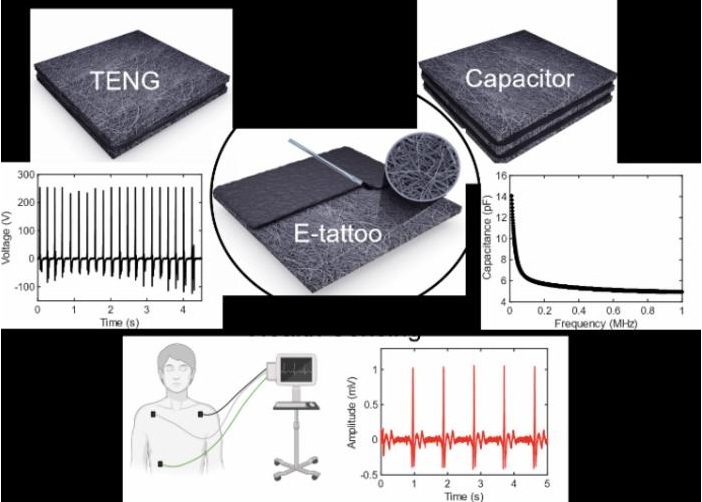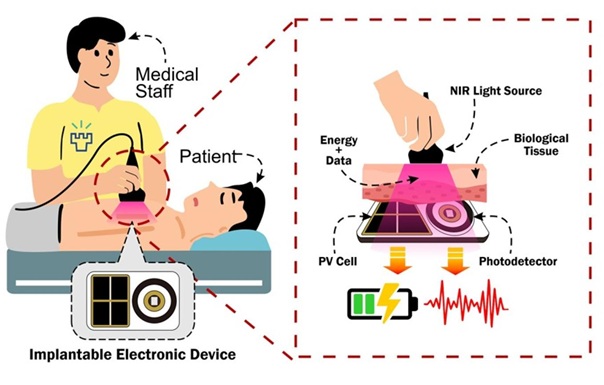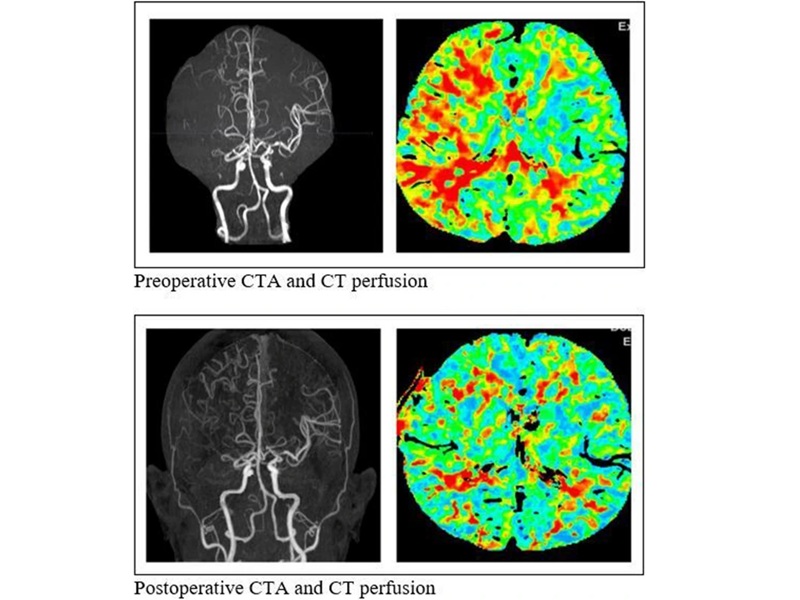AI Tool Helps Make Real-Time Diagnosis During Surgery
|
By HospiMedica International staff writers Posted on 26 Dec 2022 |

When a patient undergoes a surgical operation to remove a tumor or treat a disease, the course of surgery is often not predetermined. To decide how much tissue needs to be removed, surgeons must know more about the condition they are treating, including a tumor’s margins, its stage and whether a lesion is malignant or benign - determinations that often hinge upon collecting, analyzing, and diagnosing a disease while the patient is on the operating table. When surgeons send samples to a pathologist for examination, both speed and accuracy are of the essence. The current gold-standard approach for examining tissues often takes too long and a faster approach, which involves freezing tissue, can introduce artifacts that can complicate diagnostics. Now, researchers have developed a new method that leverages artificial intelligence to translate between frozen sections and the gold-standard approach, thereby improving the quality of images to increase the accuracy of rapid diagnostics.
For making final diagnoses, pathologists use formalin-fixed and paraffin-embedded (FFPE) tissue samples - this method preserves tissue in a way that produces high-quality images but the process is laborious and typically takes 12 to 48 hours. For a rapid diagnosis, pathologists use an approach known as cryosectioning that involves fast freezing tissue, cutting sections, and observing these thin slices under a microscope. Cryosectioning takes minutes rather than hours but can distort cellular details and compromise or tear delicate tissue. Researchers at the Brigham and Women’s Hospital (Boston, MA, USA) have developed a deep-learning model that can be used to translate between frozen sections and more commonly used FFPE tissue. The team demonstrated that the method could be used to subtype different kinds of cancer, including glioma and non-small-cell lung cancer.
The researchers validated their findings by recruiting pathologists to a reader study in which they were asked to make a diagnosis from images that had gone through the AI method and traditional cryosectioning images. The AI method not only improved image quality but also improved diagnostic accuracy among experts. The algorithm was also tested on independently collected data from Turkey. The researchers note that in the future, prospective clinical studies should be conducted to validate the AI method and determine if it can contribute to diagnostic accuracy and surgical decision-making in real hospital settings.
“We are using the power of artificial intelligence to address an age-old problem at the intersection of surgery and pathology,” said corresponding author Faisal Mahmood, PhD, of the Division of Computational Pathology at BWH. “Making a rapid diagnosis from frozen tissue samples is challenging and requires specialized training, but this kind of diagnosis is a critical step in caring for patients during surgery.”
“Our work shows that AI has the potential to make a time-sensitive, critical diagnosis easier and more accessible to pathologists,” said Mahmood. “And it could potentially be applied to any type of cancer surgery. It opens up many possibilities for improving diagnosis and patient care.”
Related Links:
Brigham and Women’s Hospital
Latest Surgical Techniques News
- Injectable Breast ‘Implant’ Offers Alternative to Traditional Surgeries
- AI Detects Stomach Cancer Risk from Upper Endoscopic Images
- NIR Light Enables Powering and Communicating with Implantable Medical Devices
- Simple Bypass Protocol Improves Outcomes in Chronic Cerebral Occlusion
- Implantable Absorbable Sensor Detects Life-Threatening Complications After Intestinal Surgery
- New Study Findings Enable Improved Ventilation During Complex Lung Surgery
- 3D-Printed Blood Vessel Scaffolds Could Transform Heart Bypass Surgeries
- Novel Imaging Technique Helps View Blood Perfusion During Esophageal Surgery
- Minimally Invasive Surgery Proven Safe and Effective for Complex ‘Whipple’ Procedure
- Catheter-Based Procedures Offer Less Invasive Option for Treatment of Valvular Disease
- Laparoscopic Surgery Improves Outcomes for Severe Newborn Liver Disease
- Novel Endoscopy Technique Provides Access to Deep Lung Tumors
- New Study Findings Could Halve Number of Stent Procedures
- Breakthrough Surgical Device Redefines Hip Arthroscopy
- Automated System Enables Real-Time "Molecular Pathology" During Cancer Surgery
- Groundbreaking Procedure Combines New Treatments for Liver Tumors
Channels
Critical Care
view channel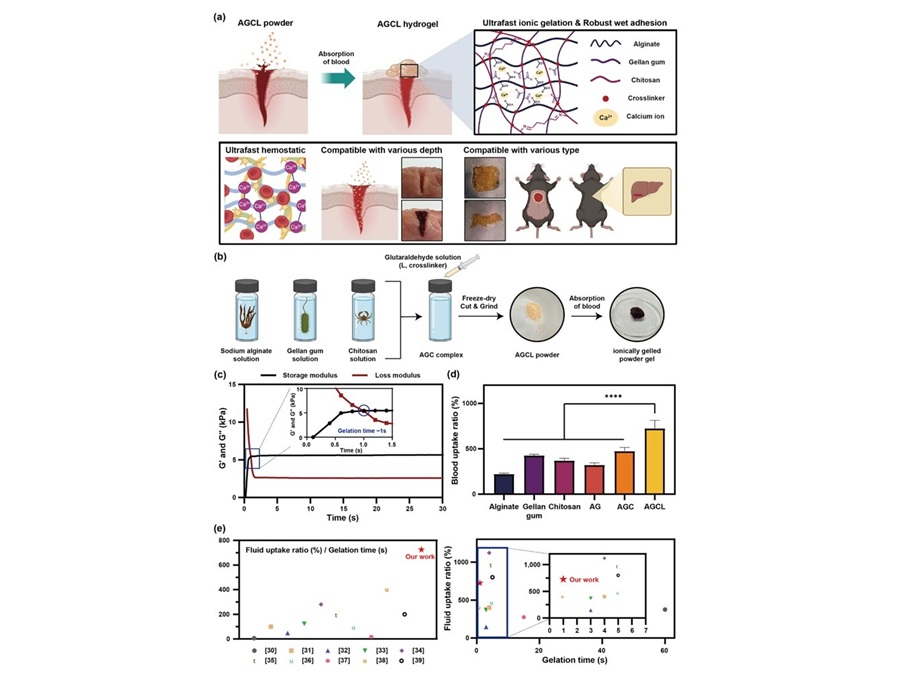
Sprayable Powder-Type Hemostatic Agent Stops Bleeding in One Second
Uncontrolled bleeding remains the leading cause of preventable death from injuries. Rapid blood loss can be fatal within minutes, especially when wounds are deep, irregular, or difficult to compress.... Read more
AI Model Helps Diagnose Often Undetected Heart Disease from Simple EKG
Coronary microvascular dysfunction is a common but elusive cause of chest pain that is frequently missed in emergency and outpatient settings. Unlike blockages in large coronary arteries, this condition... Read moreSurgical Techniques
view channel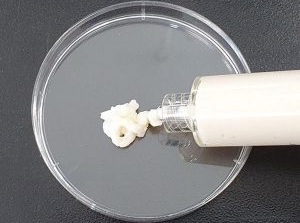
Injectable Breast ‘Implant’ Offers Alternative to Traditional Surgeries
Breast cancer surgery can require the removal of part or all of the breast, leaving patients with difficult decisions about reconstruction. Current reconstructive options often rely on prosthetic implants... Read more
AI Detects Stomach Cancer Risk from Upper Endoscopic Images
In many parts of the world, doctors must make complex clinical decisions with limited access to specialist support, advanced diagnostics, or pathology services. This is especially challenging in gastrointestinal... Read morePatient Care
view channel
Revolutionary Automatic IV-Line Flushing Device to Enhance Infusion Care
More than 80% of in-hospital patients receive intravenous (IV) therapy. Every dose of IV medicine delivered in a small volume (<250 mL) infusion bag should be followed by subsequent flushing to ensure... Read more
VR Training Tool Combats Contamination of Portable Medical Equipment
Healthcare-associated infections (HAIs) impact one in every 31 patients, cause nearly 100,000 deaths each year, and cost USD 28.4 billion in direct medical expenses. Notably, up to 75% of these infections... Read more
Portable Biosensor Platform to Reduce Hospital-Acquired Infections
Approximately 4 million patients in the European Union acquire healthcare-associated infections (HAIs) or nosocomial infections each year, with around 37,000 deaths directly resulting from these infections,... Read moreFirst-Of-Its-Kind Portable Germicidal Light Technology Disinfects High-Touch Clinical Surfaces in Seconds
Reducing healthcare-acquired infections (HAIs) remains a pressing issue within global healthcare systems. In the United States alone, 1.7 million patients contract HAIs annually, leading to approximately... Read moreHealth IT
view channel
EMR-Based Tool Predicts Graft Failure After Kidney Transplant
Kidney transplantation offers patients with end-stage kidney disease longer survival and better quality of life than dialysis, yet graft failure remains a major challenge. Although a successful transplant... Read more
Printable Molecule-Selective Nanoparticles Enable Mass Production of Wearable Biosensors
The future of medicine is likely to focus on the personalization of healthcare—understanding exactly what an individual requires and delivering the appropriate combination of nutrients, metabolites, and... Read moreBusiness
view channel
Philips and Masimo Partner to Advance Patient Monitoring Measurement Technologies
Royal Philips (Amsterdam, Netherlands) and Masimo (Irvine, California, USA) have renewed their multi-year strategic collaboration, combining Philips’ expertise in patient monitoring with Masimo’s noninvasive... Read more
B. Braun Acquires Digital Microsurgery Company True Digital Surgery
The high-end microsurgery market in neurosurgery, spine, and ENT is undergoing a significant transformation. Traditional analog microscopes are giving way to digital exoscopes, which provide improved visualization,... Read more
CMEF 2025 to Promote Holistic and High-Quality Development of Medical and Health Industry
The 92nd China International Medical Equipment Fair (CMEF 2025) Autumn Exhibition is scheduled to be held from September 26 to 29 at the China Import and Export Fair Complex (Canton Fair Complex) in Guangzhou.... Read more













